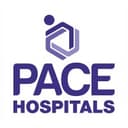PhD in Cardiology
OR
Prepared by Docthub Courses Team ∣
Last updated on 14 Oct 2025
Overview
The PhD in Cardiology centers on research into cardiovascular diseases and their treatment. The program aims to advance knowledge and improve clinical practices in cardiology. The duration is usually 3 to 5 years, with a curriculum that includes cardiac physiology, interventional procedures, research methodologies, and clinical trial design.

Table of Content
What is a PhD in Cardiology?
The PhD in Cardiology is an advanced research-focused program for medical professionals, educators, and aspiring practitioners who want to equip themselves with in-depth knowledge and hands-on training required in cardiovascular sciences. The course offers a curriculum integrating theoretical knowledge with hands-on practice in the field. Additionally, the program combines a rigorous structure with theoretical learning and practical training, enabling graduates to gain proficiency through original research, data analysis, and innovation in emergency protocols in heart-related diseases, treatments, and preventive care. The growing demand for these professionals makes this course highly valuable for those looking to specialize in this high-demand field.
Highlights:
| Particulars | PhD in Cardiology |
| Course Type | Doctoral |
| Duration | 3-5 Years (depending on institution) |
| Eligibility | MD/MS/DNB in Cardiology or equivalent; some universities require NET/JRF |
| Admission Process | Entrance exam, interview, research proposal submission |
| Fees | Varies between ₹50,000- 2,00,00 (some fully funded PhD options are available) |
| Colleges | AIIMS (Delhi), CMC Vellore, PGIMER (Chandigarh), JIPMER (Puducherry), KGMU (Lucknow), SCTIMST (Thiruvananthapuram) |
| Job Roles | Cardiologist, Research Scientist, Professor, Clinical Trial Specialist |
Eligibility:
For the PhD in Cardiology eligibility, candidates must hold an MD/MS/DNB in Cardiology or a related field, qualifying scores in NET/JRF (for UGC-recognized programs) or university-specific entrance exams. Moreover, prior research experience may also be required (preferred but not mandatory).
Duration:
Typically, the duration of the course spans 3-5 years, depending on research progress and thesis completion.
Fees:
The fees vary between ₹50,000–₹2,00,000 per year. Government institutes may be cheaper; however, private universities may charge higher, but fully funded PhD options are available through ICMR, DBT, and CSIR fellowships.
Who Should Do This Course?
The PhD in cardiology in India offers exposure to several opportunities for candidates to excel in their fields and provides a good boost to their careers through the knowledge and skills gained in this course. Professionals with a strong interest in this field and seeking to advance their careers can opt for the course. Below are some of the details provided:
- Aspiring Researchers: If you’re passionate about cardiovascular research and want to contribute to medical advancements.
- Academicians: Those aiming to teach in medical colleges or universities.
- Clinical Cardiologists: Doctors seeking to specialize further and lead clinical trials.
- International Aspirants: Candidates planning to work abroad, as a PhD enhances global opportunities.
Why Enroll in This Course?
Enrolling in a fully funded PhD in cardiology equips candidates’ skills that can help them address the related challenges through this course. The course opens the doors to working on niche roles. Furthermore, this course is essential for skill enhancement and career boost. Moreover, to get global recognition and diverse career exposure, candidates can also opt for this course. Below are the details provided:
- Research Excellence: Contribute to cutting-edge studies in heart diseases, interventions, and therapies.
- Career Growth: Opens doors to high-paying roles in hospitals, research labs, and academia.
- Global Recognition: A PhD is valued worldwide, especially if paired with publications.
- Fully Funded Options: Many Indian institutes offer stipends, reducing financial burden.
Entrance Exam:
Most PhD in cardiology colleges require candidates to clear UGC-NET/JRF or institutional tests for PhD admission.
Admission Process:
- Submit application with academic transcripts.
- Clear entrance exam (if applicable).
- Interview & research proposal defense.
- Secure funding (fellowships/grants) if applying for a fully funded PhD in Cardiology.
Syllabus:
| Phase | Topics Covered |
| Year 1 | Advanced cardiac physiology, research methodology, and biostatistics. |
| Year 2 | Specialized topics (e.g., interventional cardiology, electrophysiology). |
| Year 3-5 | Thesis work |
Top Colleges:
- AIIMS (Delhi) – Fully funded, premier research facilities.
- PGIMER (Chandigarh) – Strong clinical research focus.
- CMC (Vellore) – Renowned for cardiovascular studies.
- KGMU (Lucknow) – Government-funded, high research output.
- SCTIMST (Thiruvananthapuram) – Specializes in medical tech and cardiology.
- JIPMER (Puducherry) – Offers stipends for PhD scholars.
- Manipal Academy (Manipal) – Private but research-driven.
- Amrita Vishwa Vidyapeetham (Kochi) – Collaborations with global institutes.
- SRM Institute (Chennai) – Emerging in cardiac research.
- Banaras Hindu University (Varanasi) – Affordable with robust infrastructure.
Scope & Career Opportunities:
The scope for a fully funded PhD in cardiology is expanding rapidly due to the rising demand for specialists. This course also acts as a knowledge booster as well as a skill enhancer and has immense applications in the current healthcare systems. Graduates are highly sought for pursuing this course, for instance, it enhances employability in clinical settings such as hospitals, research, and academia. The rising demand for specialists opens the door for national and international opportunities, enhancing employability. Below are some of the details provided on career scopes, PhD in cardiology salary in India, and opportunities:
- Senior Cardiologist: ₹18–30 LPA
- Research Scientist: ₹12–20 LPA
- Medical Professor: ₹10–18 LPA
- Clinical Trial Specialist: ₹15–25 LPA
Salary:
Typically, after completion of the course, the PhD in cardiology salary per month can range between ₹1-2.5 Lakhs in India, and may increase depending on roles and experiences. The candidates can get higher earnings in international opportunities in the U.S. and the Gulf areas.
Further Study Options:
After completing the PhD in cardiology in India, the candidate is equipped with the required specialized skills; however, for further enhancement, professionals may opt for additional education. Below are the further courses that the candidates may choose:
- Postdoctoral Fellowships (e.g., in the U.S. or Europe).
- Super-specialization (e.g., Pediatric Cardiology).
- MBA in Healthcare Management (for administrative roles).
What is a PhD in Cardiology?
A PhD in Cardiology is a doctoral program focused on advanced research in heart diseases, treatments, and innovations. It’s tailored for doctors and researchers aiming to lead in academia, hospitals, or global research organizations.
How long is a PhD in Cardiology?
Typically 3–6 years, depending on thesis completion. Coursework takes 1–2 years, followed by dedicated research.
What are the eligibility criteria for a PhD in Cardiology?
You need an MD/MS/DNB in Cardiology and often a NET/JRF qualification. Some universities require prior research experience.
Where can I study a PhD in Cardiology?
Top choices include AIIMS Delhi, PGIMER Chandigarh, CMC Vellore, and KGMU Lucknow. Many offer a fully funded PhD in Cardiology with stipends.
What is the highest-paying job in cardiology?
Interventional Cardiologists earn the most (₹25–50 LPA in India; higher abroad). Research leads in pharma or global health organizations also command top salaries.
Explore colleges for this course
Quick Go Links

Explore this course by location..
by States
by Cities
Related Job Roles
Professor/Associate Professor/Assistant Professor-Cardiology
Related Job Vacancies
View All 283 Jobs

Related Course titles

Qualifications
DM Cardiology
MD Cardiology
DNB Cardiology
Related Specialty
Pediatric Cardiology
Transplant Cardiology
Nuclear Cardiology
Sports Cardiology
Non Invasive Cardiology
Preventive Cardiology
Perinatal Cardiology
Interventional Cardiology




